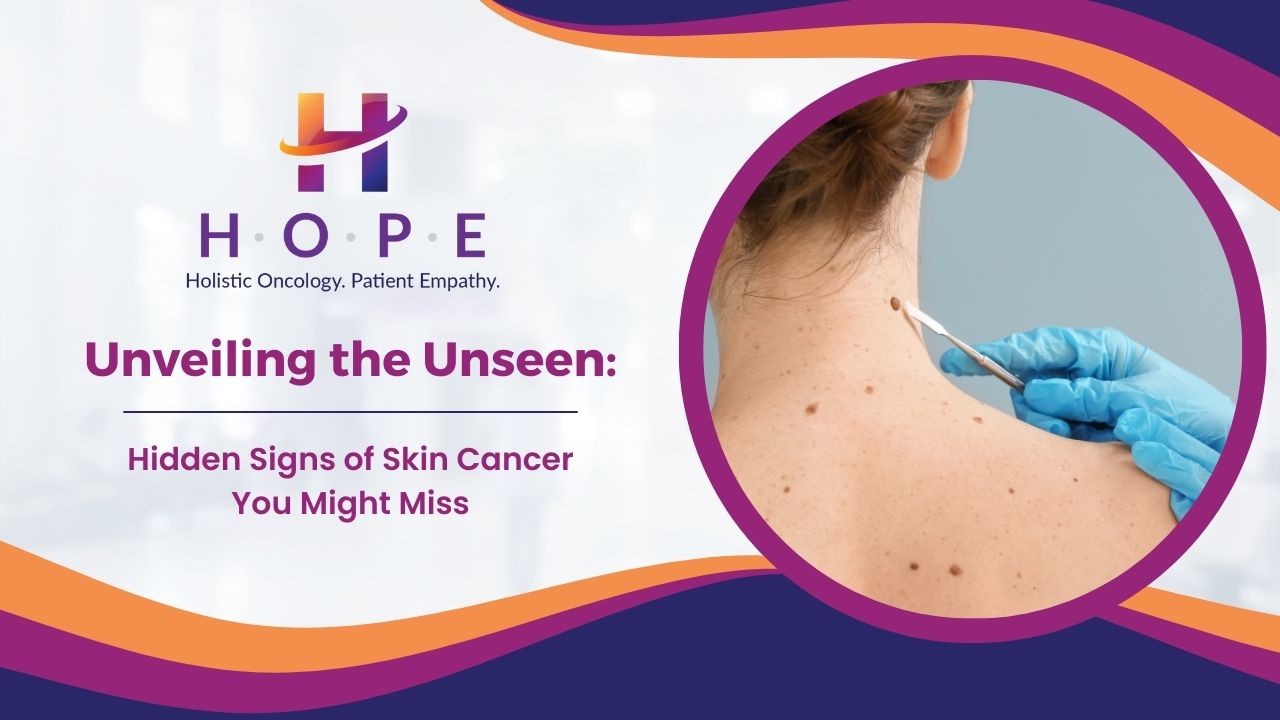Unveiling the Unseen: Hidden Signs of Skin Cancer You Might Miss
Introduction:
Skin cancer, the most common type of cancer worldwide, often lurks in plain sight, manifesting itself subtly and gradually. While many people are vigilant about checking for obvious changes such as new moles or irregularities in existing ones, there are several hidden signs that can go unnoticed. In this article, we will delve into the lesser-known indicators of skin cancer that might escape your attention, emphasizing the importance of regular self-examinations and professional screenings.
Understanding Skin Cancer:
Before we explore the hidden signs of skin cancer, it’s crucial to grasp the basics of this prevalent disease. Skin cancer develops when the DNA in skin cells undergoes damage, primarily caused by exposure to ultraviolet (UV) radiation from the sun or tanning beds. The three main types of skin cancer are basal cell carcinoma, squamous cell carcinoma, and melanoma.
Changes in Nail Beds:
While many focus on moles and freckles, changes in the nail beds can also be indicative of skin cancer. Dark streaks or bands under the nails, known as subungual melanoma, can be an alarming sign. This type of melanoma often goes unnoticed until it reaches an advanced stage, making it essential to pay attention to any alterations in the nails.
Persistent Itching or Pain:
Skin cancer may present itself with persistent itching or pain in a particular area. While these symptoms can be attributed to various skin conditions, if they persist for an extended period, it’s crucial to consult a dermatologist. Itching may be related to the growth of cancer cells, and pain can be a sign that the cancer has invaded nerve endings.
Unexplained Bleeding or Oozing:
Skin cancers, particularly basal cell carcinoma and squamous cell carcinoma, may exhibit unexplained bleeding or oozing. If a sore or lesion on the skin consistently bleeds, crusts, or oozes, it warrants immediate attention. Such symptoms could be indicative of an aggressive form of skin cancer that requires prompt intervention.
Changes in Skin Texture:
Alterations in the texture of the skin, such as roughness, scaliness, or the appearance of a new bump or nodule, can be subtle yet crucial signs of skin cancer. Skin cancers may disrupt the normal texture of the skin, and any persistent changes should be examined by a dermatologist.
Red or Inflamed Skin:
While redness and inflammation are common responses to various skin conditions, persistent redness in a specific area should be closely monitored. Skin cancers, especially basal cell carcinoma, can cause the skin to become red or inflamed, resembling a rash or irritation.
Rapidly Growing Lesions:
While it’s common for moles to change slowly over time, a sudden and rapid increase in size should be a cause for concern. Melanomas, in particular, can exhibit accelerated growth, and any mole or lesion that undergoes a noticeable change in a short period should be evaluated promptly.
Discoloration Around Existing Moles:
Changes in the color of the skin surrounding an existing mole can be a hidden sign of skin cancer. If the skin becomes darker or exhibits uneven pigmentation, it may indicate melanoma. Regularly monitor the color and borders of your moles, and seek professional advice if you notice any discrepancies.
Swelling or Enlargement of Lymph Nodes:
Skin cancer can spread to nearby lymph nodes, leading to swelling or enlargement. While lymph node swelling can be a sign of various conditions, persistent enlargement without an obvious explanation should be evaluated by a healthcare professional.
Conclusion:
Identifying the hidden signs of skin cancer is crucial for early detection and successful treatment. Regular self-examinations, combined with professional screenings, play a pivotal role in maintaining skin health. By being vigilant about subtle changes in your skin, nails, and overall texture, you empower yourself to catch potential skin cancer at its earliest and most treatable stages. Remember, when it comes to your skin, knowledge and awareness are your greatest allies in the fight against this pervasive disease.

